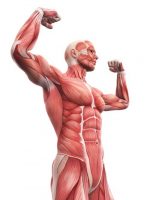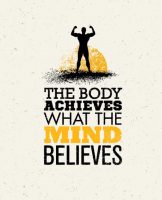
What Happens When the Largest, Strongest Muscle in Your Body is Weak
Muscle balance is essential for healthy physical functioning. So, what happens when the biggest, strongest muscle in your body is weak and lazy? Find out.

Muscle balance is essential for healthy physical functioning. So, what happens when the biggest, strongest muscle in your body is weak and lazy? Find out.

You likely already know that core training is important, not only for core strength but for core stiffness as well. A study shows that not all core exercises are equally effective. Find out why.

What’s your maximal strength? In reality, you’re stronger than that. When you train, you only tap into a percentage of your absolute strength. Here’s how strong you really are.

Do you warm-up before a workout? Hopefully, you do. However, warm-ups don’t have to be lengthy to be effective. In fact, a long, drawn-out warm-up may actually be detrimental. Find out why.

As we age, we lose muscle and our aerobic capacity and endurance decline as well. Now, an exciting new study shows a hormone made by bone could reverse the loss of exercise capacity and physical functioning with age. Find out more.

When training your upper or lower body against resistance, your muscles need 48 hours or more to recover. Is the same true for abdominal training? Read on and discover the downsides of working your abs every day.

When you weight train, your focus is on increasing muscle strength and size – but what about muscle quality? Muscle quality and quantity aren’t necessarily correlated. Find out what characterizes a high-quality muscle and how muscle quality changes with age.

With training, we’re so focused on keeping muscles healthy and injury free that we forget about another important component that allows us to move – fascia. Find out what fascia is, the role it plays in fitness training, and what you can do to keep it healthy.

Aging muscles? Yes, they age along with the rest of you – but how? This article looks at the three main things that happen to your muscles as you enter the second half of life – and what you can do to prevent these changes.

Are guys and gals with the biggest muscles the ones that can lift the most weight? Not always. Muscle size and cross-sectional area isn’t the only factor that determines how strong you are. Find out what other factors play a role in how much you can lift.

What role does your brain play in helping you get stronger? More than you might think. Some research suggests that strengthening the mind-muscle connection can help you build more strength and improve the quality of your workouts. Find out more.

An exercise hormone? Yes, scientists recently discovered a novel “hormone” produced by muscles during exercise. As it turns out, your muscles are actually hormone-producing machines, at least in some capacity. Find out more.